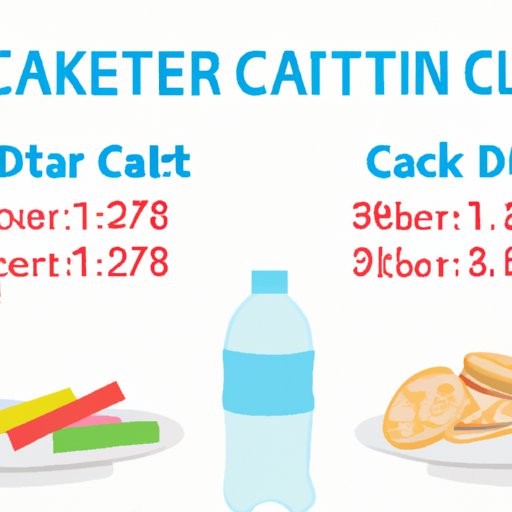Introduction
Eating at a calorie deficit means consuming fewer calories than you burn in a day. This type of eating pattern can be beneficial for those who are looking to lose weight. By creating a calorie deficit, you can create an energy imbalance that leads to weight loss. It is important to remember that this should be done in a healthy way and with the support of a health professional if needed.
Tracking Your Calorie Intake
The first step in eating at a calorie deficit is to track your calorie intake. This will help you get an accurate idea of how many calories you are consuming each day. You can do this by calculating your daily calorie needs, which is based on factors such as your age, gender, activity level, and weight goals. Once you have calculated your daily calorie needs, you can keep track of your calorie intake by writing down what you eat each day. This will help you identify where you need to make adjustments to reach your calorie deficit goals.
It is also important to adjust your calorie intake as needed. This may mean increasing or decreasing the amount of calories you consume each day depending on how you are feeling and your progress towards your weight goals. Make sure to consult with a health professional if you have any questions about adjusting your calorie intake.
Eating Nutrient-Dense Foods
When eating at a calorie deficit, it is important to focus on eating nutrient-dense foods. This means choosing foods that are low in calories but high in nutrition. These types of foods will provide your body with essential nutrients while helping you stay within your calorie budget. Incorporating high-fiber foods into your diet is also beneficial as they are filling and can help you feel satisfied throughout the day.
Cutting Out Processed and Sugary Snacks
Processed and sugary snacks are not beneficial when eating at a calorie deficit. These types of snacks are high in calories and low in nutrition, making them an unhealthy choice. It is important to understand why these snacks are not beneficial and to find healthier alternatives. Some examples of healthier alternatives include fruits, vegetables, nuts, and seeds.
Drinking Plenty of Water
Drinking plenty of water is also important when trying to eat at a calorie deficit. Staying hydrated throughout the day will help you feel energized and keep you from overeating. Additionally, drinking water can help flush out toxins from your body and may even aid in weight loss. Make sure to drink enough water each day to stay properly hydrated.
Conclusion
Eating at a calorie deficit can be a great way to safely and healthily lose weight. The key is to track your calorie intake, focus on eating nutrient-dense foods, cut out processed and sugary snacks, and drink plenty of water. Remember to make small changes over time and consult with a health professional if needed. With the right guidance and determination, you can reach your weight loss goals.
(Note: Is this article not meeting your expectations? Do you have knowledge or insights to share? Unlock new opportunities and expand your reach by joining our authors team. Click Registration to join us and share your expertise with our readers.)
